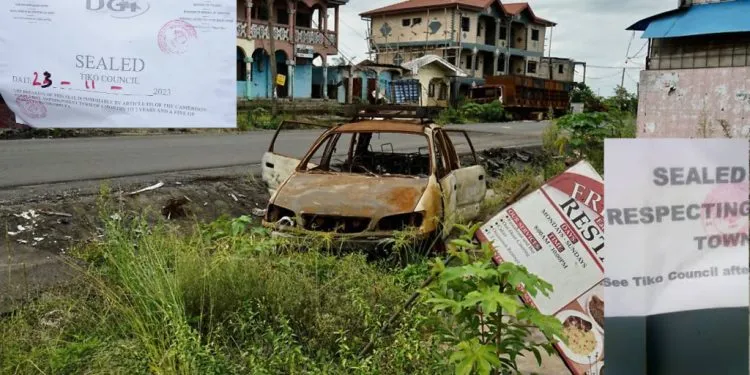Businesses in Tiko are finding themselves ensnared in a web of bureaucratic red tape as the local administration’s policies and separatist impositions wreak havoc on their economic activities. Residents paint a grim picture, describing their plight as a descent into economic chaos, with every small detail seemingly geared against the local shop owners.
A particularly contentious issue revolves around the mandatory opening of shops on Mondays, a day when most administrative offices, courts, and major institutions remain closed. This is despite the fact that the populace adheres to a forced sit-at-home routine on Mondays, resulting in a virtual standstill in regular activities.
What adds a layer of complexity to this situation is the origin of the Monday sit-at-home tradition. Initiated in 2016 by the Cameroon Anglophone Civil Society Consortium as a form of protest against perceived marginalization, the practice was later usurped by the Ambazonian separatist movement. While the initial intent was to raise awareness and advocate for Anglophone rights, the unintended consequence has been the economic hardship inflicted upon local businesses, particularly the mandatory closing of shops.
One frustrated shop owner lamented, “On Mondays, the entire town is practically shut down. The offices are closed, the courts are not in session, and even the marketplaces are deserted. Yet, we, the local shop owners, are compelled to open our shops. It’s not just about opening; the bigger question is, sell to whom? People don’t move freely on Mondays, and our businesses suffer as a result.”
This mandatory opening policy on Mondays has left many scratching their heads, wondering about the rationale behind such a measure. The economic burden on small business owners in Tiko is palpable as they grapple with the challenge of operating in near isolation on a day when the rest of the town comes to a standstill.
The sentiment is echoed across various sectors, with complaints extending to the broader economic environment in the English-speaking Regions of Cameroon. The frustration is encapsulated in the stark assertion that “Cameroon is Hell,” capturing the prevailing sense of disillusionment among the local populace.
Attempts to seek clarification from the Tiko municipal administration have been met with silence, leaving business owners to navigate the perplexing maze of regulations on their own. The confluence of conflicting policies, rooted in a historical socio-political movement, exacerbates the frustration felt by the local entrepreneurs who are struggling to keep their businesses afloat amidst lingering separatist tensions.
As Tiko grapples with this economic conundrum, the wider implications for the region’s business community remain uncertain. The clash between administrative directives, the legacy of historical protests, and economic pragmatism paints a challenging landscape for Tiko’s small business owners, who are left to weather the storm of conflicting policies in their quest for economic stability.



